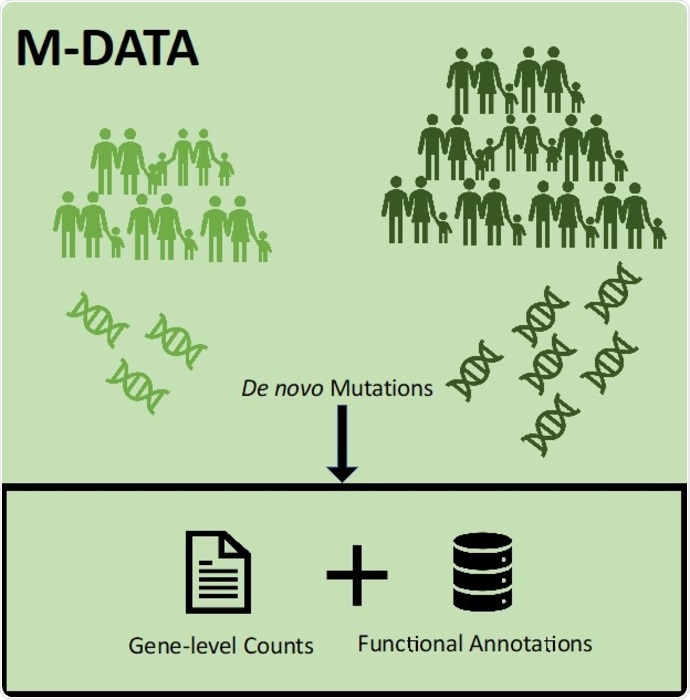Scientists recently discovered almost two dozen genes that contribute to heart defects while analyzing genetic data from individuals born with autism and congenital heart disease.

Workflow of M-DATA. Image Credit: Yuhan Xie.
Hongyu Zhao from Yale University and co-workers created a novel algorithm to examine genetic data from related conditions. The research was published on November 4th, 2021 in the PLOS Genetics journal.
Multiple diseases that occur early in life seem to be associated with mutations in the same genes. A current study analyzing de novo mutations—new mutations that occur in kids but are not present in the parents—revealed a connection between congenital heart defects and autism.
Sequencing de novo mutations is exorbitant, and the small research works of individual diseases have restricted power to pinpoint genes that augment an individual’s risk of the disease.
The scientists created an algorithm named M-DATA (Multi-trait De novo mutation Association Test with Annotations) that combines sequencing data from individuals with related conditions to pinpoint genes that contribute to disease. The scientists applied the new technique to genetic data from individuals with congenital heart disease or autism.
They successfully found 23 genes for congenital heart disease, including 12 that were not known earlier.
Scientists surmise that M-DATA is highly efficient in pinpointing genes that increase a person’s risk compared to analyses concentrating on a single disease. This is because M-DATA analyzes numerous combined genomes from multiple groups of people rather than examining a small number of genomes from affected people.
The novel technique might help scientists pinpoint earlier unknown genes associated with disease and enhance knowledge of the cause and possible treatment for various conditions.
“By jointly analyzing de novo mutations from congenital heart disease (CHD) and autism, we identified novel genes that may play an important role in explaining the shared genetic etiology of CHD and autism.”
Hongyu Zhao, Yale University
“As a biostatistics student, it’s very motivating to find what could be meaningful to the patients and their families,” states Yuhan Xie, the lead student of the study.
Source:
Journal reference:
Xie, Y., et al. (2021) M-DATA: A statistical approach to jointly analyzing de novo mutations for multiple traits. PLOS Genetics. doi.org/10.1371/journal.pgen.1009849.